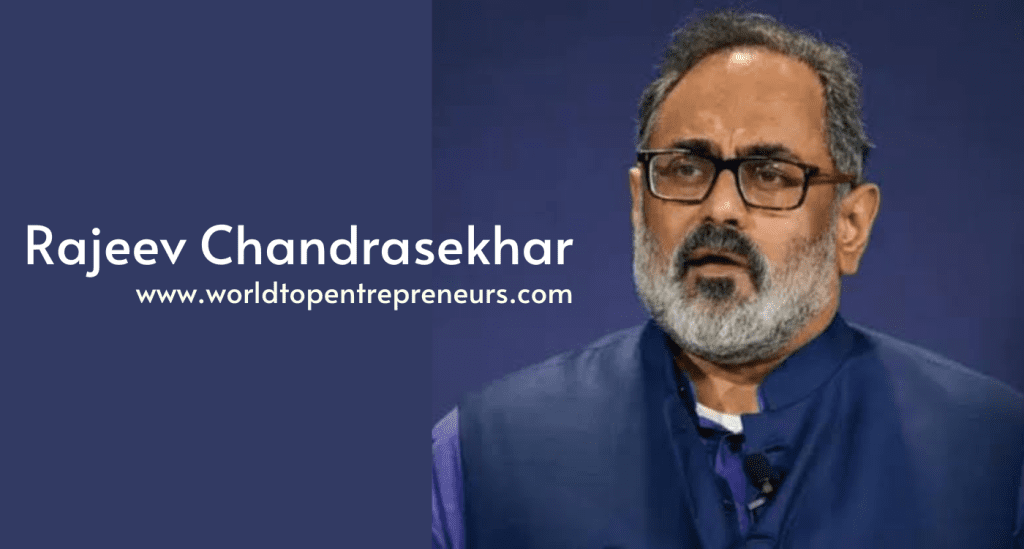Introduction
Rajeev Chandrasekhar, a dynamic entrepreneur, philanthropist, and politician, has played a significant role in shaping India’s technology and telecommunications sectors. One of his most notable contributions came through his association with BPL Mobile, which helped pave the way for India’s mobile telecommunications revolution. Rajeev’s entrepreneurial journey is a story of innovation, overcoming challenges, and his unwavering commitment to pushing the boundaries of technology.
In this blog, we will delve into Rajeev Chandrasekhar’s early life, educational background, the founding and growth of BPL Mobile, the struggles he faced, the key successes he celebrated, and his broader impact on the telecom industry and beyond.
Early Life and Educational Background
Rajeev Chandrasekhar was born in 1960 in India, into a middle-class family where education was highly valued. His early years were shaped by a desire to understand the world around him and a curiosity for technology. This passion led him to pursue a career in engineering and later, entrepreneurship.
Rajeev earned his Bachelor’s degree in Electrical Engineering from Mangalore University. His academic journey didn’t stop there; he moved to the United States to pursue a Master’s degree in Computer Science and Electrical Engineering from the Illinois Institute of Technology, Chicago. This combination of technical and engineering expertise gave Rajeev the foundation to understand the intricacies of the telecommunications industry, which he would later revolutionize in India.
His time in the U.S. was pivotal in broadening his outlook on technology, innovation, and business, influencing his future entrepreneurial ventures. Rajeev was deeply impressed by the technological advancements he witnessed in the West and became determined to bring similar innovations to India.
The Beginning of Rajeev’s Entrepreneurial Journey
Rajeev Chandrasekhar’s entrepreneurial career began in the late 1980s when he first entered the world of technology and telecommunications. After completing his studies, he worked in the United States in the technology sector, gaining invaluable experience in the IT industry. However, he always envisioned a way to leverage his skills and knowledge in India, which was then in the early stages of embracing technology and telecom infrastructure.
In the early 1990s, India was beginning to open up its economy with economic reforms, and this created opportunities for new ventures. Rajeev, seeing a gap in India’s telecom landscape, decided to return to his homeland and build something that could revolutionize how people communicated. He co-founded BPL Mobile in 1995, a telecom company that would go on to become one of the major players in India’s mobile communications market.
The Founding of BPL Mobile
BPL Mobile, founded by Rajeev Chandrasekhar, was one of the first mobile phone companies in India. During the mid-1990s, India’s mobile industry was nascent, with very few players in the market and even fewer people using mobile phones. Rajeev and his team saw the immense potential for growth in the telecommunications sector and were determined to make mobile communication more accessible to the Indian masses.
The company’s early days were filled with challenges. One of the biggest struggles Rajeev faced was the high capital investment needed to build infrastructure, secure licenses, and offer services in a market that was just beginning to understand mobile communication. To add to that, the Indian government had strict policies and regulatory hurdles, which made entry into the telecom sector even more difficult.
Despite these obstacles, BPL Mobile was among the first companies to establish a cellular network in Mumbai (formerly Bombay), one of the most competitive and demanding markets in India. The company’s strategic focus on providing reliable mobile services in urban areas helped it attract early adopters.
BPL Mobile’s success was also driven by its innovative approach to marketing, creating awareness among customers about the benefits of mobile phones, and offering competitive pricing. Rajeev Chandrasekhar had a strong vision for the company and its role in transforming the way people lived and communicated. Over the years, BPL Mobile grew rapidly, expanding its operations to other parts of India, including Gujarat, Maharashtra, and Tamil Nadu.
Struggles Along the Way
Building BPL Mobile was far from easy. Rajeev encountered several roadblocks, both external and internal.
- Regulatory Challenges: One of the major obstacles was navigating the complex regulatory environment in India. In the 1990s, the telecom industry in India was heavily regulated by the government, and telecom policies were still evolving. BPL Mobile had to deal with constantly changing regulations, spectrum allocation issues, and licensing hurdles, all of which required significant effort to address.
- Intense Competition: As India’s mobile market began to expand, competition intensified. Companies like Bharti Airtel, Reliance Communications, and Vodafone entered the market, making it increasingly difficult for BPL Mobile to maintain its lead. Rajeev had to constantly innovate to stay ahead, ensuring that BPL Mobile offered better services at competitive prices. The market dynamics were shifting rapidly, and BPL Mobile had to continually adapt its strategies to maintain a foothold.
- Financial Constraints: The cost of building telecom infrastructure was significant. BPL Mobile, as a relatively young company, had to secure funding to build its network and expand operations. Balancing profitability with long-term investment in infrastructure and technology was a constant challenge.
- Consumer Education: In the early years, mobile phones were a luxury and a novelty in India. Educating consumers on the importance of mobile communication, how to use mobile phones, and the affordability of mobile services was a significant challenge for BPL Mobile.
Despite these challenges, Rajeev Chandrasekhar was relentless. His strategic vision, combined with a focus on customer-centric services, allowed BPL Mobile to become one of the leaders in the Indian mobile telecom industry.
Successes and Milestones
Rajeev Chandrasekhar’s journey with BPL Mobile culminated in several successes that transformed the Indian telecom sector. Some key milestones in his career include:
- Pioneering Mobile Networks: BPL Mobile was one of the first private companies to provide cellular mobile services in India. Rajeev’s ability to spot the potential of mobile communications in a developing country allowed him to capture the early market and build a strong brand presence.
- Expansion and Market Leadership: BPL Mobile expanded its services to several states and cities in India, gaining a strong user base. The company quickly became known for its customer service, competitive pricing, and extensive network coverage.
- Successful Sale to Vodafone: In 2006, BPL Mobile was acquired by Vodafone, marking the end of an era for Rajeev Chandrasekhar’s venture but also its successful exit from the mobile industry. Under the Vodafone banner, BPL Mobile’s operations continued to thrive, with the international telecom giant consolidating its position in India.
- A Vision for India’s Digital Future: Beyond BPL Mobile, Rajeev went on to invest in various other tech and telecom ventures, including Asianet and Airtel. His business acumen and commitment to technological advancements allowed him to continue shaping India’s digital landscape.
Rajeev’s Broader Impact and Vision for the Future
Rajeev Chandrasekhar’s entrepreneurial success extends far beyond BPL Mobile. He has been a key figure in the evolution of India’s telecommunications policy, playing a significant role in shaping regulations and encouraging investments in the sector. Rajeev is also known for his philanthropic work, particularly in the fields of education and technology.
As a Member of Parliament from Karnataka, he has used his position to advocate for policies that foster technological growth and digital empowerment, particularly for India’s youth. Rajeev is also a vocal proponent of cybersecurity and digital literacy in India’s rapidly evolving tech landscape.
Looking forward, Rajeev’s vision for India is one where technology continues to drive economic growth, improve quality of life, and empower individuals. His role in the development of India’s telecom sector has laid the foundation for an increasingly connected and digitally empowered nation.
Conclusion
Rajeev Chandrasekhar’s entrepreneurial journey with BPL Mobile is a powerful example of vision, resilience, and innovation. From pioneering mobile communication in India to playing a major role in the country’s tech landscape, Rajeev has cemented his legacy as one of India’s leading entrepreneurs.
His story is a testament to how determination, technical expertise, and a customer-first mindset can transform industries and create lasting impact. As India continues to embrace digital transformation, Rajeev’s contributions to the telecom and tech sectors will undoubtedly continue to shape the future of India’s economy.





















